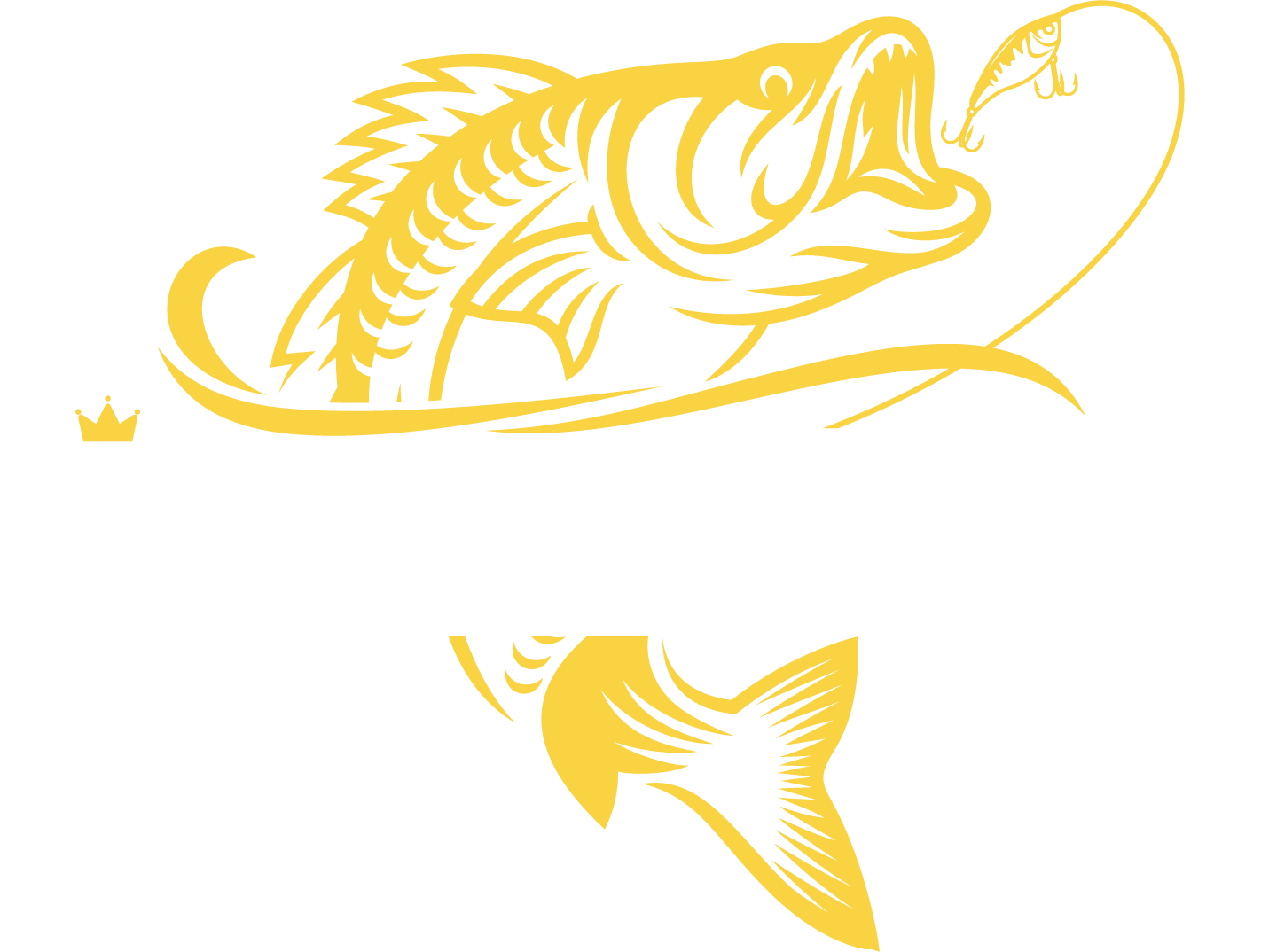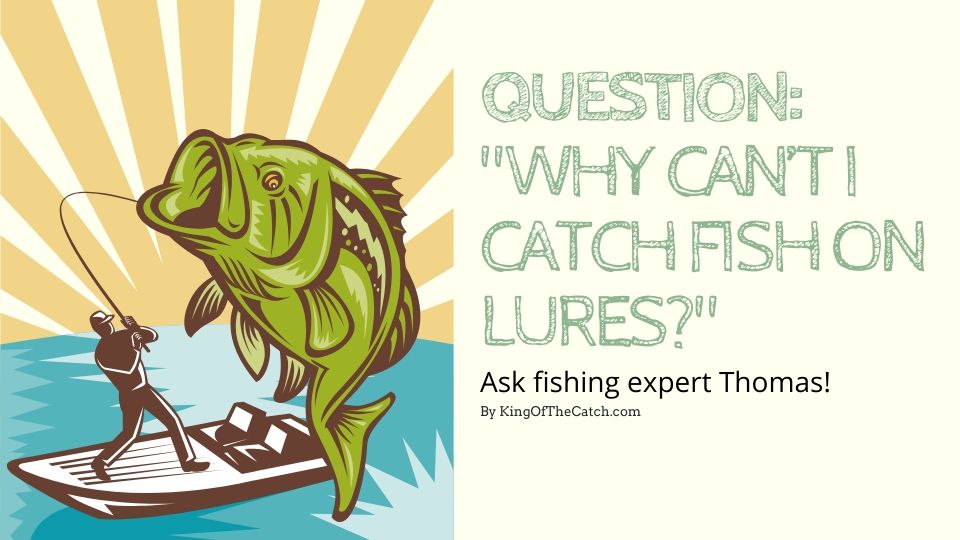Fishing can be a leisurely or exciting activity based on what kind of fish you are trying to catch. Lures will help you with your catch. But sometimes, you might experience a “dry spell” even when surrounded by water because the lures just do not seem to accomplish the reason for which they exist in the first place. Do not feel dismayed, because there is a solution to any reason why you might not be able to catch fish on lures.
Why can’t I catch fish on lures?
Hi Thomas, my name is Tina. I’m a 24-year old fishing enthusiast from Alabama, USA. I have only recently gotten into fishing and bought some lures to make my pursuit easier. However, all my efforts seem to be a waste because I still can’t catch any fish. Can you please guide and help me to figure out why I can’t catch fish on lures?
Answer: Hi Tina, I am Thomas, and I happen to know a few reasons why you can’t catch fish on lures. Many people have the same question, so you should not feel cornered or distressed over this issue. Let us go through the reasons why the number of your catches are not increasing even after using a lure.
Lures will make your job of catching fish more manageable, but there are a few things you should know about fishing with lures. You can use lures to catch fish because they resemble their appearance and movement looks like the fish’s prey or food. You should know the fish you want to catch and what they prey upon before getting into your fishing boots.
Here are the reasons why the fish are not biting your bait:
Wrong season to fish
Yes. As challenging to comprehend as it may seem, there is such a thing as the wrong season to fish. Let us take the example of largemouth bass to explain this point. If the largemouth bass is your aim, going fishing during the winter will only mean time wasted on waiting for the fish to bite. Your chances of catching this fish are highly unlikely during the colder months.
I suggest you go fishing for largemouth bass during springtime after the spawning period. It is during this time that the females lurk on shallow waters, giving you ample opportunity to catch a big fish. During summer, the temperature will increase, and you might have a tough time catching fish. Fall or autumn will be slightly easier, but not as favorable as spring.
It will help if you learn about the behavior and pattern of your fish’s movements before you set a fishing date.
Wrong lure
As you might know by now, there are many lures and baits in the market. The maker designs each lure for a specific type of fish. Even if you have a lure, it will not increase your chances of catching a fish if it is not the right one.
Plugs or crankbaits resemble small fish or bait that the bigger ones prey. They are slightly lighter, made of plastic, and have a lip that helps with the lure’s movement. The Truscend fishing lure is an excellent plug lure that you can try out to catch bass.
Jigs are also similar to plugs except that they have a weight on them to sink effortlessly. They also have a soft feather or rubber tail. With the Facikono lure, you will find it easier to catch deep feeders like largemouth bass.
Spinnerbaits move horizontally across the water and spins all the while reflecting color to attract fish like Perch and Pike. If you want to catch that Perch, you always wanted to catch, get your hands on the Booyah Pond Magic and tick that aim off the list.
Flies are the perfect lure for fly fishing and spin fishing. These lures make use of feathers, fur, and thread to resemble insects and other types of prey. Fly tying is not an easy job. Hence, you can use the Fishingsir fly kit instead.
Wrong spot of fishing
It is evident that fish do not swim or wander in every part of a lake, river, or other water body. You should know that there is always a sweet spot for fishing. You might have the right lure but might be waiting for a catch in the wrong place.
I will say this again, learn about the fish you want to catch and where they wander or swim. Does the fish you want to catch stay in shallow or deep waters? Knowing this will give you an idea regarding where to start.
If I can give you a personal suggestion, you should keep moving until you catch a fish. Once you do, you can settle in that spot and take your time to get more fish.
Wrong time of the day to fish
So now you know what season is best to go on a fishing spree. You also have the right lure for the catch that you desire and go the perfect spot to reel the fish in. But they are still not biting. What could be the reason? There is a possibility that you chose the wrong time of the day to fish.
Fish usually go on their daily activities when it is slightly warm. Since they are cold-blooded creatures, most fish will stay idle or rest when it is cold. On the other hand, if the water is too hot, they will retreat to deeper waters to stay cool.
During springtime and fall, I suggest you plan your fishing trip at dusk when the water is just warm enough. In summer, you should avoid noon or early afternoon and avoid the hottest hours of the day. Winter is not a good time to fish, regardless of what time of the day you choose. It is not impossible to catch fish during the cold months, but you will have a very tough time getting the fish to bite your lure.
Not considering cold fronts
As you might have noticed in the above points, the temperature of the water has a significant effect on fish. If it is too hot or cold, you might not catch any fish on lures. The cold is a much more negative situation for fishing. There are times and areas when cold air advances and transitions into warmer areas, which we call cold front.
If you come across a cold front, you should try to fish deeper and use smaller lures. Do not hurry while presenting you lure and rush your retrieval. If there is any way to avoid cold fronts, my advice for you is to do so.
You are making too much noise
It is true that noise does not travel as fast under the water as it does in the air. However, the sounds that you make underwater travel as quickly and clearly as sounds above the water. Large vibrations from the sounds and noise that you make will make fish think that larger predators are lurking around. As a result, they might swim away from you.
Making sounds may not be that bad for your fishing plans, but it is best to stay as quiet as possible so that you can cancel out any chances of scaring them away.
The winds are not in your favor
Too much wind might give you a hard time controlling your boat in the middle of a lake or the sea. If your boat is moving back and forth, you cannot fish effectively. But the wind is not always your enemy. The right amount of wind can bring in baitfish. Strong winds will also help you drift across the water effortlessly.
Going in too deep
How deep you go depends on the temperature of the water and the season. During the summer mornings and evenings, you will not catch any largemouth bass if you go in medium-deep or deep. Usually, this fish will swim in medium to shallow waters to stay in warmer waters. If you have checked all the points stated above, consider not fishing too deep. You have more chances to catch a fish in shallow waters at any time of the day.
And there you go, Tina! I hope these tips will help you improve your lure game. When start catching the big ones, make sure to forward a nice picture. I will add it to this article! 🙂
Happy fishing!
Thomas

Niels Thomas is a wildlife expert and fishing fanatic that works with major fishing brands like Deeper Sonar, Abu Garcia, Berkley, PENN, BassPro and Pure Fishing. Through sharing the best fishing tips, tricks, gear reviews, locations and much more he hopes to inspire fishing fanatics to start their own journey towards becoming the King of the Catch!

